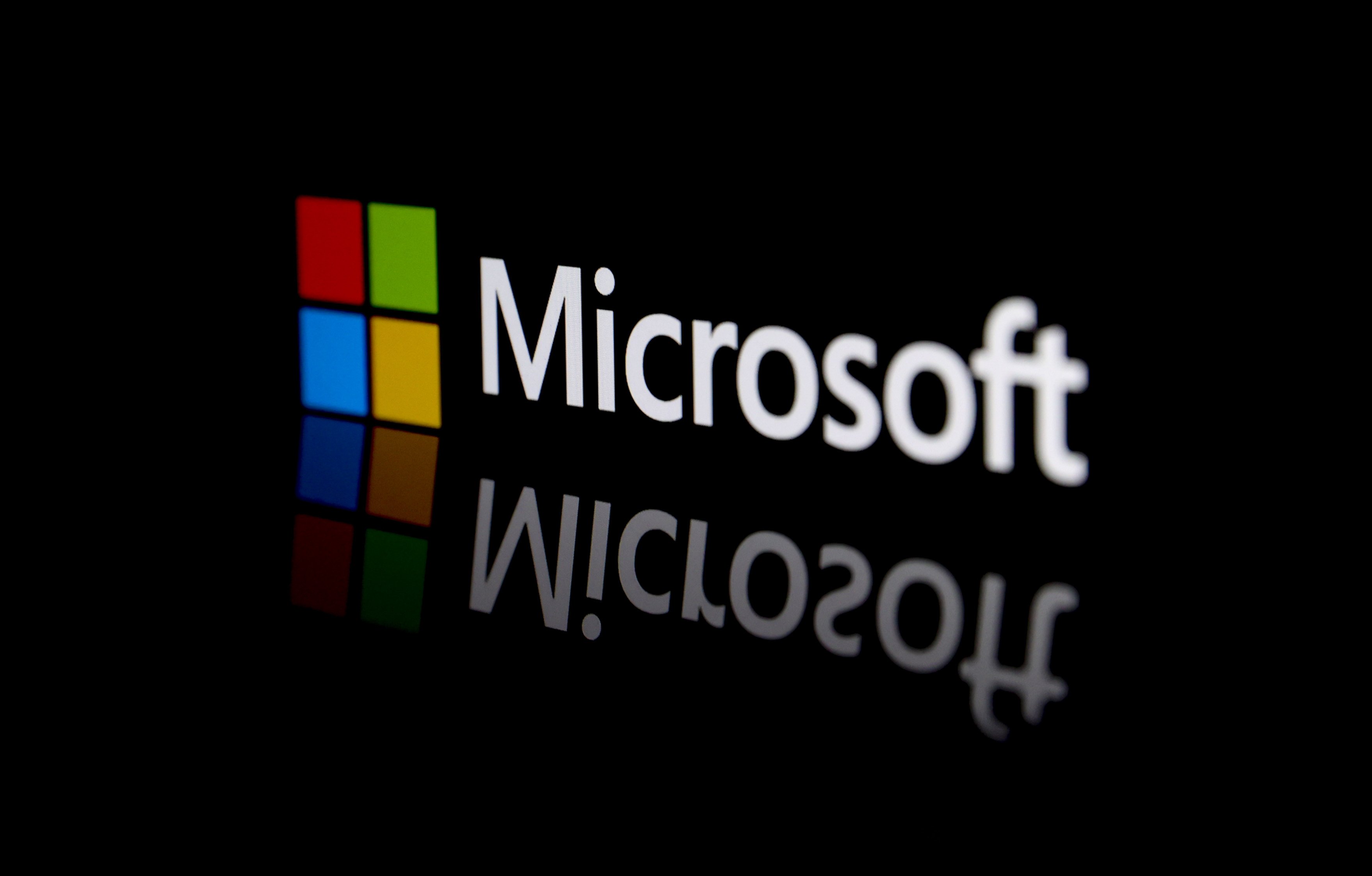The larger a company grows, the more difficult it is to generate market-beating returns -- at least in theory. Yet, even in the middle of a market downturn, Microsoft (MSFT 0.83%) showed why it's the exception to the rule, defying detractors and handily beating Wall Street's expectations. At the same time, however, the company sounded warning bells about its future growth, sending its stock sinking.
For its fiscal first quarter (ended Sept. 30), the tech giant reported revenue of $50.1 billion, up 11% year over year or 16% in constant currency. At the same time, diluted earnings per share (EPS) clocked in at $2.35, down 13% year over year or 7% in constant currency. Both metrics easily surpassed analysts' consensus estimates, which called for sales of $49.7 billion and EPS of $2.31. Unfortunately, this also marked Microsoft's lowest rate of revenue growth in five years.

NASDAQ: MSFT
Key Data Points
One of the most highly anticipated figures in Microsoft's report is the performance of its intelligent cloud segment, which generated revenue of $20.3 billion, up 20% year over year. The highlight of the segment was Azure cloud, which grew 35%.
Microsoft's productivity and business processes segment, which houses Office commercial products, reported revenue of $16.5 billion, up 9%. LinkedIn was the standout, with revenue up 17%, driven higher by Talent Solutions, its job recruiting and hiring platform. Furthermore, LinkedIn sessions grew 24% while also delivering record engagement.
Growth concerns loom
If there was a weak link in the chain, it was the more personal computing segment, which delivered revenue of $13.3 billion, down slightly. The weakness was the result of a sagging PC market, with fewer computers being sold with Windows pre-installed. Xbox content and services added to the slump, down 3%. Consumers have reined in spending in recent months in the face of high inflation, weighing on the segment.
Microsoft also reported an increase in operating expenses, driven by heavy investments in Azure.
Perhaps what has investors most concerned is the company's guidance, which came in well below expectations for its fiscal second quarter. Management is guiding for revenue of $52.85 billion at the midpoint of its guidance, or growth of just 2% year over year, which is well short of analysts' consensus estimates. (Analysts were calling for revenue of $56.2 billion or about 6% growth).
The most troubling aspect of its forecast concerns its standout cloud segment, as CFO Amy Hood said, "We expect Azure revenue growth to be sequentially lower by roughly five points on a constant currency basis." This should ring some alarm bells, as it suggests growth at the cloud unit might slow to 30% in the current quarter.
Furthermore, Microsoft continues to see foreign exchange headwinds because of the strong dollar, resulting in a hit to revenue growth of 5% for the full fiscal year.
Is Microsoft stock a buy?
Back to the seminal investing question: Is Microsoft stock a buy? There are a number of factors to consider when deciding if the stock is a good fit for your portfolio.
One of the most important elements of Microsoft's business is the diversification of its sales. The combination of revenue from the cloud and business productivity segments typically helps offset any weakness in the consumer-facing segment and vice versa. Yet as its guidance shows, no business is completely immune to a downturn.
That's where Microsoft's rock-solid financial position comes into play. The company boasts nearly $47 billion in net cash on its balance sheet, which should be sufficient to see the tech giant through even a protracted downturn.
Another strong selling point is Microsoft's dividend. While its yield might seem meager at about 1%, the company has raised its payout every year since re-instituting its dividend back in fiscal 2013. Furthermore, the company spends just 25% of its profits to fund the payout, providing investors with a reliable source of revenue in troubling times. Microsoft has also been buying back stock at an impressive clip, with its share count declining by 11% over the past decade.
Microsoft stock hasn't been beaten down nearly as much as many of its technology peers, falling roughly 27% from its high reached late last year. At the same time, though, Microsoft is selling for roughly 26 times earnings, a slight premium compared to the price-to-earnings ratio of the Nasdaq Composite, which currently stands at about 25.
Like many of its technology peers, Microsoft may temporarily fall victim to the current bear market, but make no mistake: Its position at the crossroads of the digital transformation, cloud computing, and gaming will fuel the company's growth for years to come. Add to that its fortress-like balance sheet, declining share count, and rock-solid dividend, and I'd argue that Microsoft shares are a buy -- particularly on any share price weakness.





